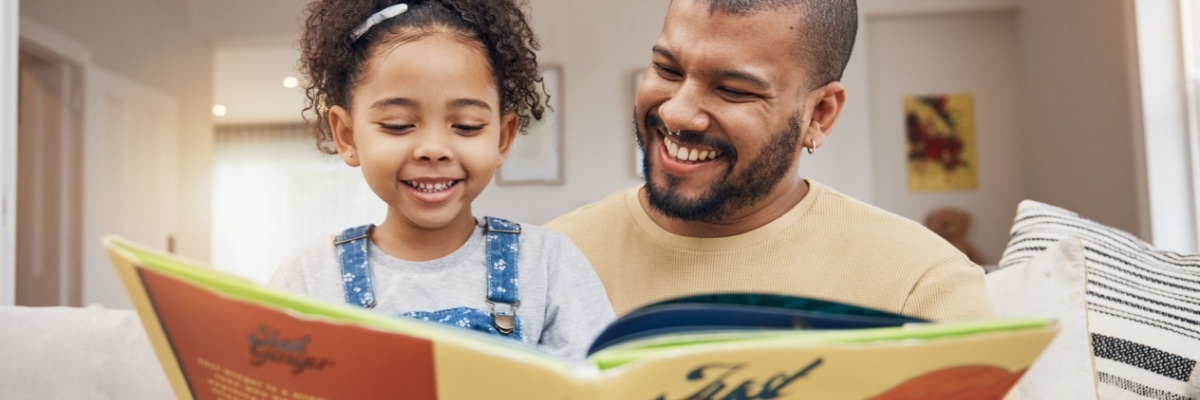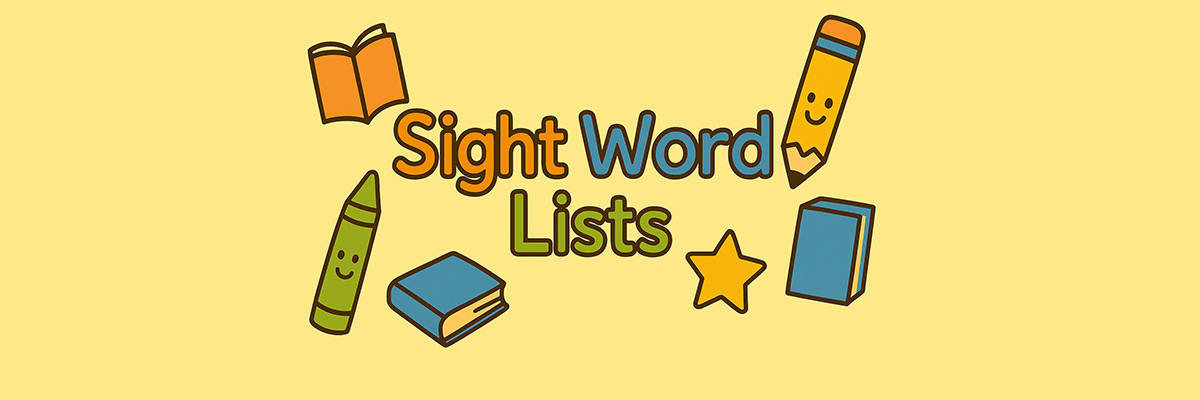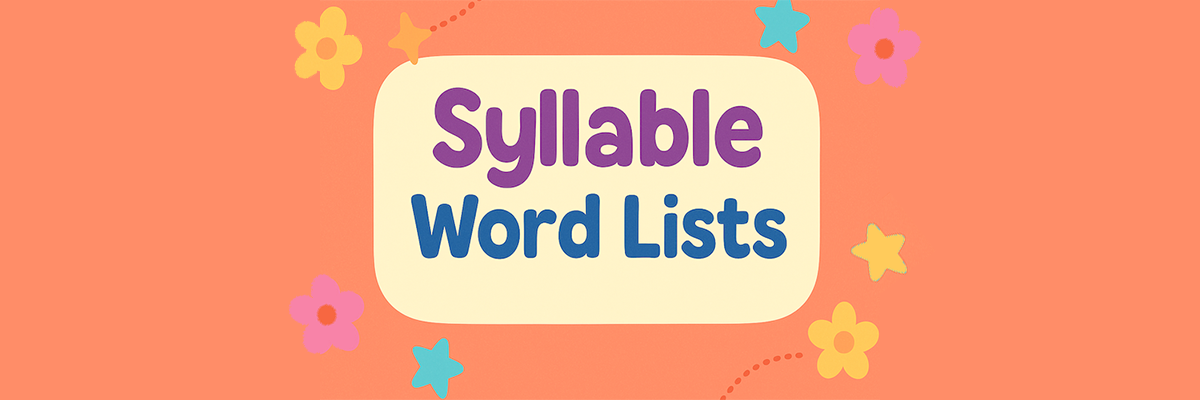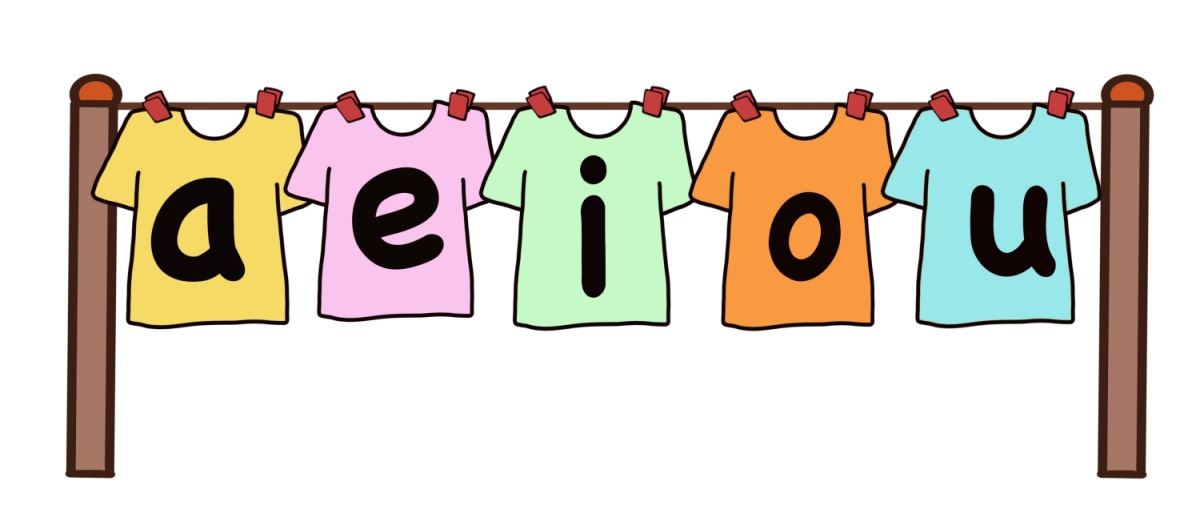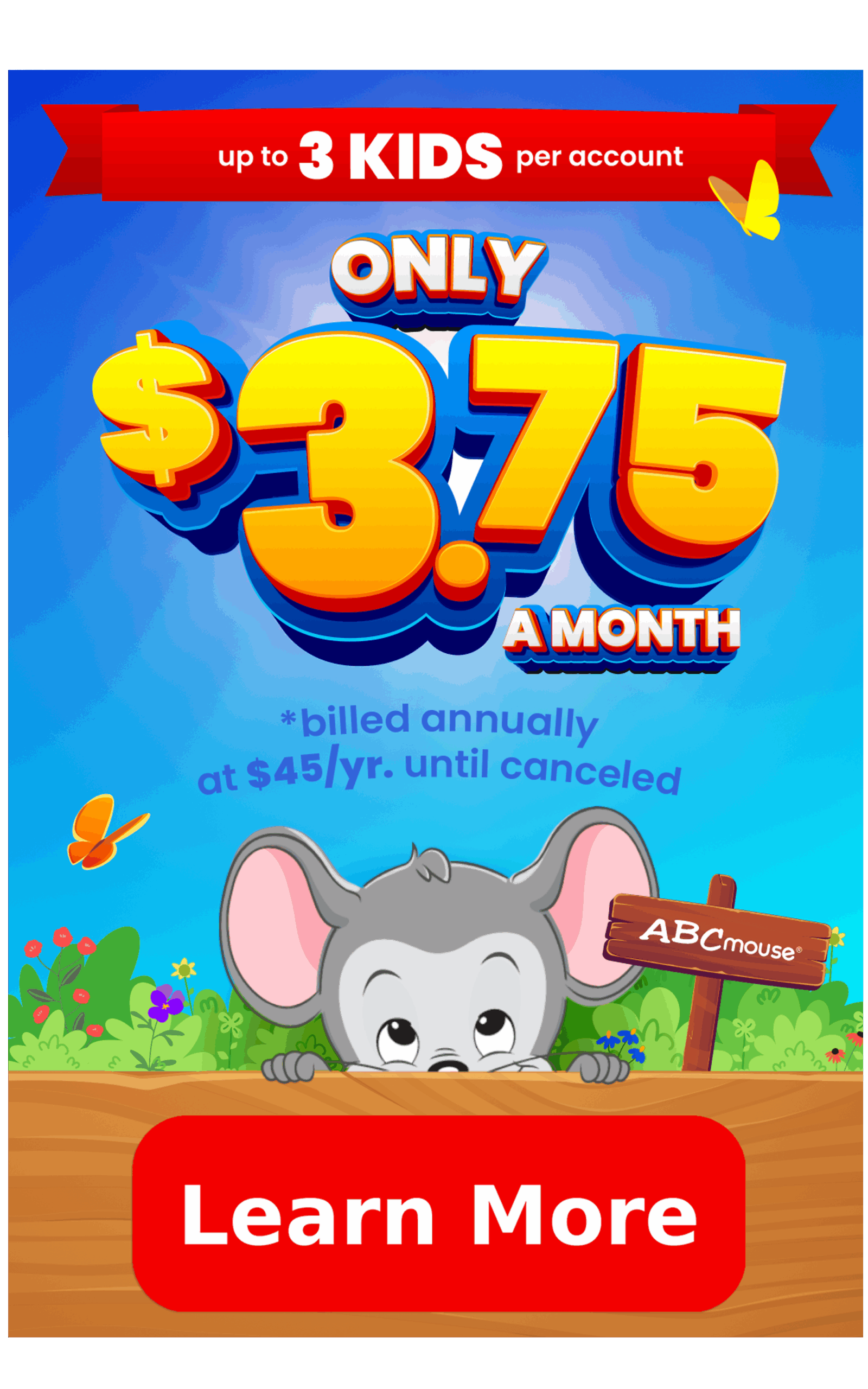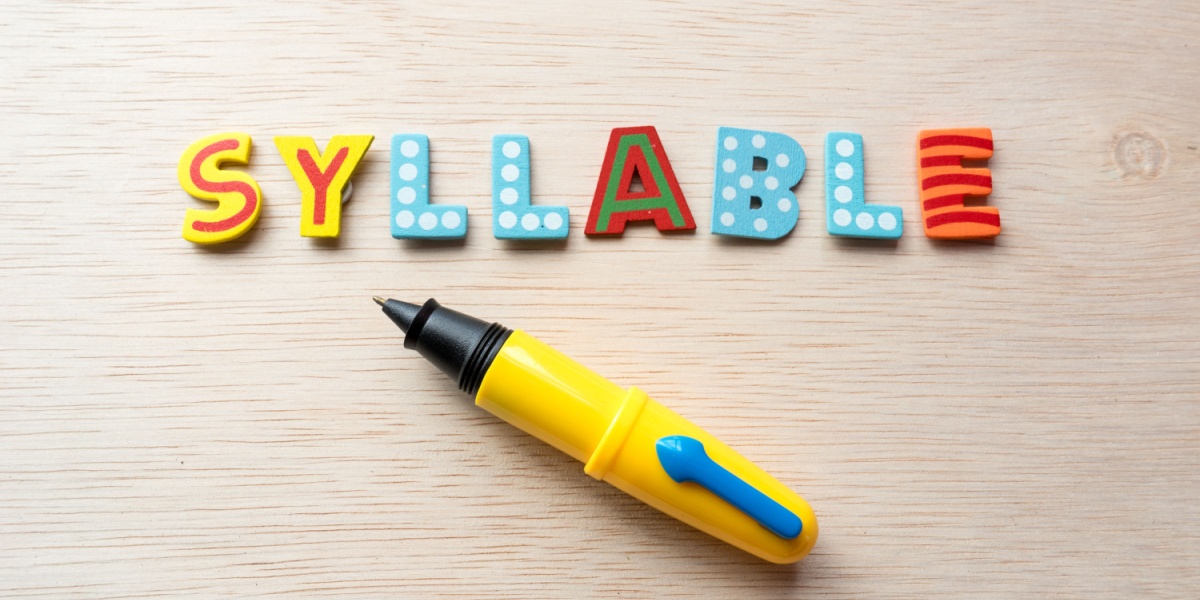
Tips and Activities for Teaching Open and Closed Syllables
Help children master the two most common types of syllables (and boost their reading skills) with these insights, games, and worksheets.
The Importance of Understanding Syllables
Understanding syllables is like a magic trick for helping children break down longer words into manageable parts. This allows them to decode and read unfamiliar words more accurately and fluently, improve their spelling skills by understanding how words are structured, and can ultimately build their confidence in reading more complex text.
A syllable is a unit of sound that’s made up of one vowel sound and zero, one, or a few consonant sounds. When we break words into their individual syllables, regular patterns become more obvious. In turn, that makes it easier to say or spell the word correctly and even decipher its meaning.
Example: The word cat is a one-syllable word, while the word apple is a two-syllable word (ap-ple or /a/- /pl/).
What Is a Closed Syllable?
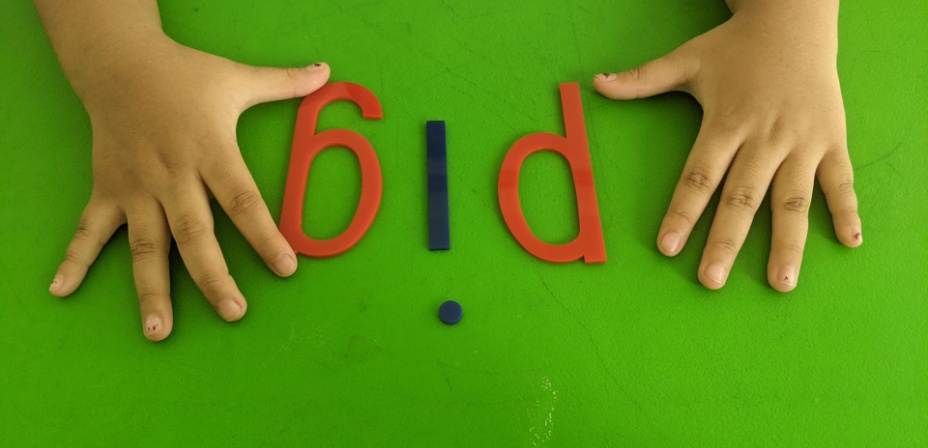
A closed syllable is one that ends in a consonant sound, using the spelling pattern vowel-consonant (VC). The ending consonant sound is a signal, letting readers know that the vowel before it is pronounced using its short sound. For example, at is a closed syllable, along with it, pig, and up.
A closed syllable can contain more than one consonant, at either the beginning or the end. As long as it ends in a consonant sound, the syllable is closed.
Examples of closed syllable words:
- chat
- pump-kin
- rus-tic
- skunk
- witch
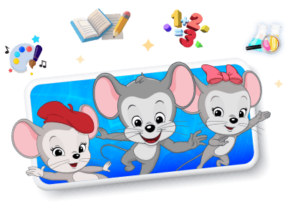
Then just $14.99/mo. until canceled
What Is an Open Syllable?
Open syllables end with a vowel sound and may or may not include consonants. The word be is an open syllable word, as is go. In an open syllable, the vowel usually “says its name,” meaning it’s pronounced using its long sound.
Examples of open syllable words:
- hi
- me
- she
- so-lo
- ze-bra
Open vs. Closed Syllables in Words
Words can contain open syllables, closed syllables, or a combination of both. Here are some examples:
Napkin: This word contains two closed syllables—”nap” and “kin.” Each syllable ends with a consonant and is pronounced using its short vowel sound.
Solo: In this word, there are two open syllables—”so” and “lo.” Both are pronounced using their long vowel sounds.
Hotel: This word starts with an open syllable “ho,” and ends with a closed syllable, “tel.” The first syllable uses the long vowel sound, and the second one uses the short sound.
Knowing where to split a word into its constituent syllables takes some practice. For instance, if you split the word ‘hotel” differently—”hot” and “el”—it would change the pronunciation, since “hot” would be pronounced with a short o sound (/ǒ/). Once kids master the concept of breaking words into syllables, they’ll find they can decode and read longer (and more interesting) words, sentences, and stories.
How to Teach Open and Closed Syllables

Want to help your child master the concept of open and closed syllables? Before you start, ensure your child understands the differences between consonants and vowels, as well as both short and long vowel sounds.
Then, try the steps and activities below, using our free printable word lists as you do.
1. Break Words Into General Syllables
Begin by ensuring your child has a good understanding of syllables. Here’s a trick to help them count syllables: Have them place their hand under their chin, then say a word and note how many times their jaw drops. For instance, when you say chipmunk, your jaw drops twice, once for each syllable.
Syllable Practice Activity
Read a sentence from your child’s favorite book. As you say each word, clap your hands or stomp your foot for each syllable. Note how many syllables are in each word. Repeat this activity with words from more books, poems, or songs until your child can consistently identify the number of syllables in words on their own.
2. Introduce Closed Syllables
Once your child understands that syllables make up words, you can begin talking about the different types, starting with closed syllables. Show them examples of closed syllables (try this list of CVC words to get started) and ask them to say the syllables out loud. Then, ask what they have in common. Help them identify that a closed syllable has one vowel followed by a consonant. The consonant “closes the door,” making the vowel say its short sound.
Closed Syllable Practice Activity
Write out a series of closed syllable words. Have your child circle the vowel in each word and underline the following consonant that “closes” it. Then ask them to read the words out loud, noticing the short vowel sounds.
3. Add Open Syllables
When your child is comfortable with closed syllables, you can introduce open syllables into the mix. Explain that since a final consonant “closes the door” on a vowel, when that final consonant is missing, the syllable is open. That “open door” leaves the vowel “free” to say its long sound.
Open Syllable Practice Activity
Compare open and closed syllables to hear the difference. Using letter magnets or cards, lay out an open syllable word. Then, have your child find and place a consonant to turn it into a closed syllable. Possible pairs: me/men, go/got, hi/his, he/her, etc.
4. Divide Words According to Their Syllable
Teach your child how to divide a word into its individual syllables, drawing a line between the letters. Here are the steps to dividing a word into syllables when your child doesn’t know the word:
- Mark the first vowel.
- Mark the second vowel.
- Mark all of the constants in between the first and second vowels.
- If the pattern is VCCV—divide between the consonants. If the first syllable is closed, use a short vowel sound.
- If the pattern is VCV—divide before the consonant (there are a few exceptions to this rule). If the first syllable is open, use a long vowel sound. Tip: If this doesn’t result in a word your child recognizes, try dividing after the consonant (closed syllable).
- If the pattern is VCCCV—look for the digraph (sh) or blend (st). Divide between the three consonants, keeping the digraph or blend together (for example, sub/tract).
Tip: It’s best to start with words the reader is very familiar with so they recognize when they get the sounds correct.
Practice Activity
Give your child a list of words and ask them to divide each word into its syllables. Have them highlight or circle each type of syllable in a different color. You can also create word cards and have children cut words apart between the syllables. (Bonus motor skill practice!)
More Open and Closed Syllables Practice Activities
Get more practice with breaking words into syllables and identifying their types with these ABCmouse activities:
Free Printable Syllable Worksheets
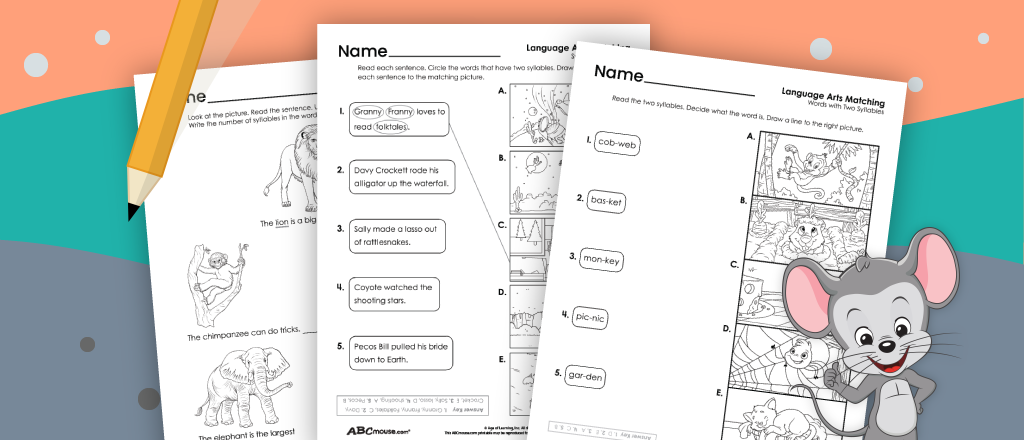
These printables are perfect for kindergarten and first-grade practice, with matching activities, crosswords, fill-in-the-blank exercises, and more.
ABCmouse Online Syllable Games
Our online games are designed by experts to make screen time educational and enjoyable. Please note that some of these games may require an ABCmouse subscription to play.

The Forest of Syllables
Build words from a selection of syllables to help the Panther Knight.

Syllables With Granny Franny
Count the syllables as Granny Franny says each word and select the correct option.

Letter City Syllables
Assemble words (many with open syllables) to equip Prospector Paul with the supplies he needs.

Wetlands Syllables Search
Visit the wetlands and put syllables together to create the names of all the cool creatures who live there.
ABCmouse’s expert advice review process:
Our team of ABCmouse Curriculum Experts, made up of talented professionals in early childhood education and development, take a close look at educational content and learning claims. They put in the effort to make sure our information is accurate and current. We have a certified educator or another respected authority review the content, matching their expertise with the topic at hand. They’ll make sure the content is thorough and follows the latest research and educational guidelines. If they think we can make things even better, they’ll chat with our editorial team, and we’ll make those improvements right away. Only after a reviewer gives their thumbs-up does a piece of content get the official stamp of approval in the byline.
Related Posts…
-
Back to School Books to Excite and Reassure Young Students
Explore this fun list of reassuring back-to-school books to help kids ease anxiety and build excitement for their first day of school.
-
Summer Reading List for Young Readers
Discover fun summer book lists for kids ages 2–8—perfect for reading at home, on trips, or at the beach!


